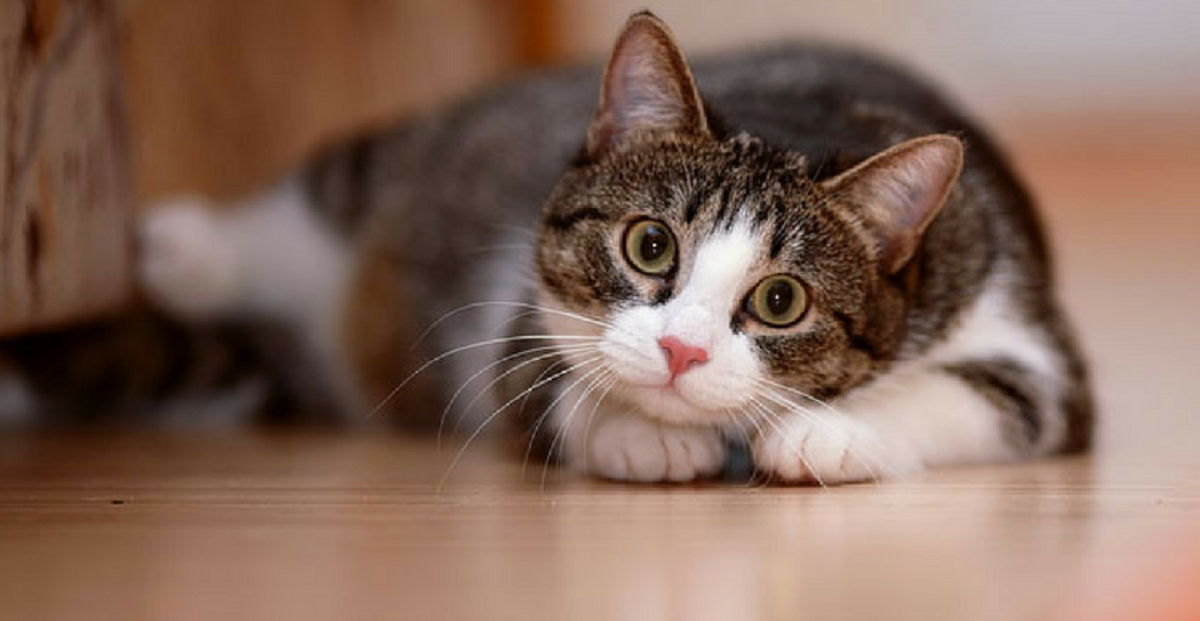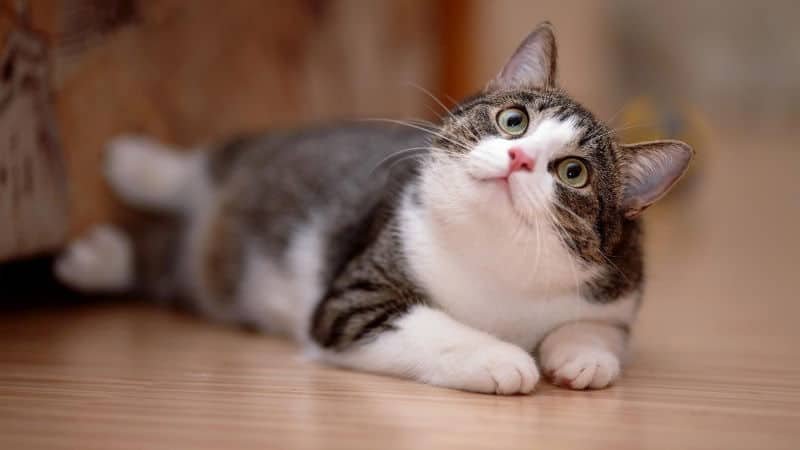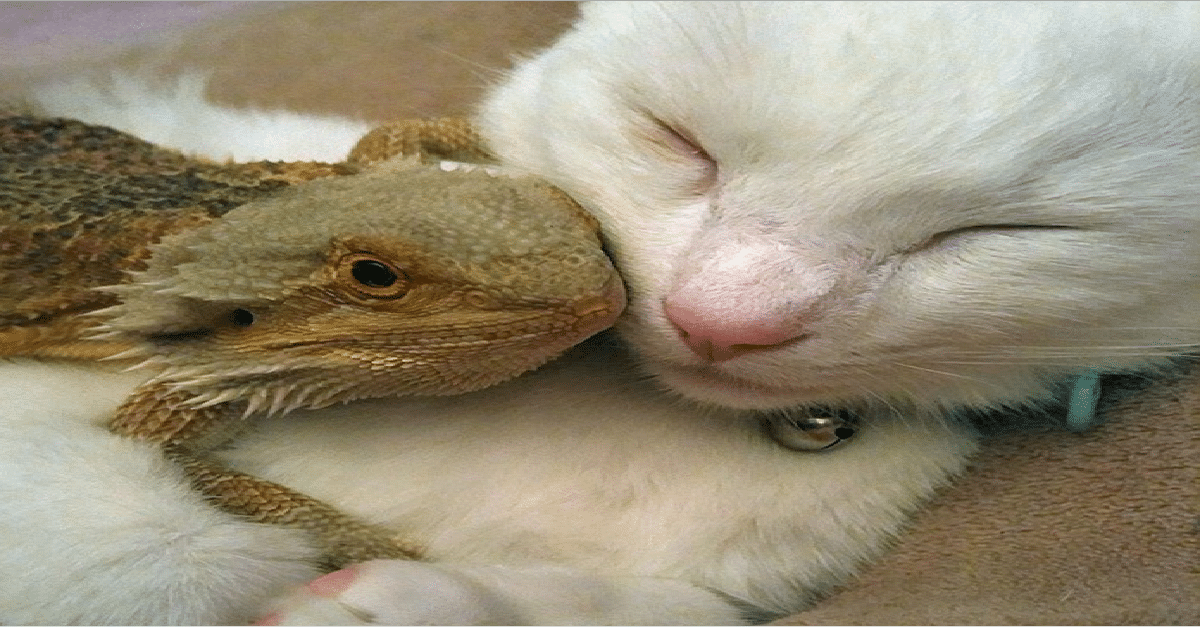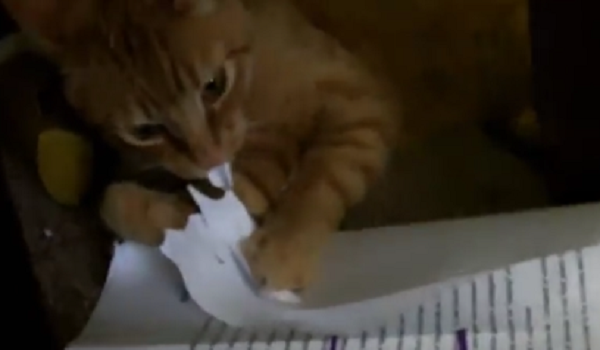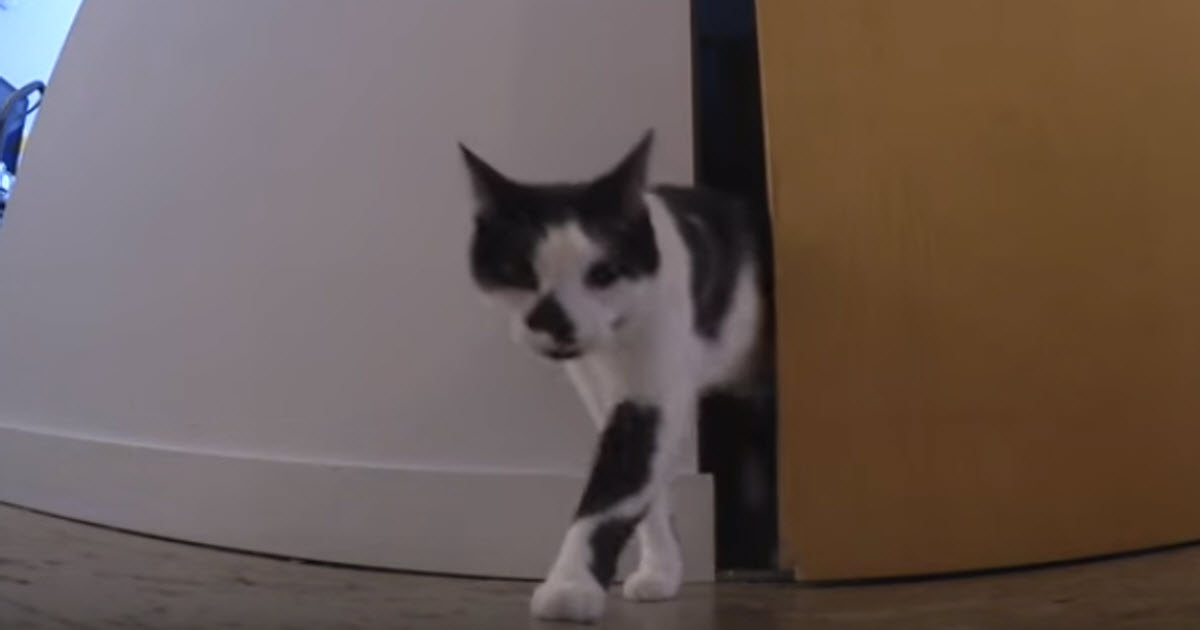There is a good chance that if you’re pregnant, your cat is behaving a little differently around you. The fact that you’re noticing this isn’t out of the ordinary, as cats are very aware of any changes in the household (or even in their human!).
Dr. Jonathan Roberts, a remote veterinarian from Excited Cats, told us that “whether they can interpret this as pregnancy is highly unlikely.”
Can cats sense pregnancy? So we talked to some vets to find out how they usually react and how you can get your cat ready for the baby’s arrival. Read on to learn more.
Cats notice a change in routine and behavior
A pregnant woman’s cat is likely already aware of many of the changes taking place in her body.
Dr. Sabrina Kong, a veterinary writer at We Love Doodles, told us that “cats do pay attention to us—more than we give them credit for.” As a result, they’ll be able to tell that you’ve changed your behavior, your routine, and your movement.
As a result of your pregnancy, you may have had to alter your work and sleep schedules. Of course, you’re also prepping the nursery for your new arrival. The chances are that your cat is paying attention to this.
According to Dr. Roberts, “Cats are thought to rather pick up on daily changes that alert them to something new.”
If you’re not acting like yourself, your cat might notice.
According to Dr. Michelle Burch, a veterinarian with Safe Hounds Pet Insurance, “Another possibility that can clue a cat in on a pregnant woman is a change in mood and behavior.” “A cat can detect a new change in a woman’s mood and behavior during the early stages of pregnancy due to the changing hormones.”
Unless this has happened before, all of these changes may not indicate that your cat is aware that you are carrying a human baby inside of you.
According to Dr. Burch’s research: “Cats notice the difference in smell and mood but most likely do not fully realize that an expectant mother has given birth.”
Cats notice a change in your temperature
Your cat can also detect changes in your body temperature.
“As pregnant women tend to be warmer than normal, cats may be more eager to snuggle and cuddle with you”, Dr. Kong said, per the New York Times.
Veterinary Dr. Maureen K. Murithi, working with Hepper, says pregnant women’s metabolism rises by 20%. Your pet may become more affectionate because of the rise in body temperature. It’s possible that they’ll become more interested in cuddling up next to you or lying on your belly.
Can cats smell pregnancy hormones?
Feminists and scientists disagree on whether or not cats are capable of sensing changes in a woman’s hormones after her pregnancy. Some veterinarians believe cats are capable of this, while others aren’t sure.
It is a common misconception that changing hormonal levels during pregnancy alter a woman’s smell or odor, but this is not true, according to Dr. Roberts.
Pregnancy-induced increases in certain hormones say some veterinarians, can alter your scent, making it more appealing to felines.
Dr. Murithi informed us that cats have a keen sense of smell. Human gonadotropin and progesterone levels rise as well as estrogen and the human gonadotropin hormone, which can all have an impact on a woman’s body odor during pregnancy. Even before the results of a pregnancy test are confirmed, cats are able to detect this.”
How soon can cats sense pregnancy?
It’s possible for your cat to detect hormonal changes early on in pregnancy if he is able to. (Maybe even before you discover it!)
As early as the first few weeks of pregnancy, according to Dr. Burch’s anecdotal evidence, cats’ behavior around a pregnant woman has changed.
Signs your cat knows you’re pregnant
If a human is pregnant, not all cats will behave in a different way. Your cat’s reaction will, of course, be determined by his personality and the stage of pregnancy in which you are.
Dr. Roberts explained that “cats can react in various ways depending on your stage of pregnancy.” Pregnant women may notice their cats becoming more protective and clingy, while other cats may become more aloof when they sense a shift in the household.
Increased affection or increased protection for the pregnant woman are two behavioral signs that you might see in your cat when you become pregnant. Some cats may exhibit erratic behavior as a result of FOMO (fear of missing out).
Sometimes, Dr. Roberts said that if the cat is feeling neglected during the pregnancy, it can become a nuisance and a danger. Pets may also begin urinating in the wrong places in the house, Dr. Burch said.
How to prepare your cat for the new baby
There are a few things you can do to help your cat adjust to the arrival of your baby.
Make any changes in advance
It is best to “introduce new baby items and furniture to the house slowly,” as recommended by Dr. Roberts, in order to avoid frightening your cat.
When the baby is born, Dr. Roberts recommends “starting closing doors or creating barriers” in rooms where you don’t want your cat to be able to roam or sleep. That way, he doesn’t have to deal with being locked out and a new human sibling all at once.
Dr. Burch recommends that any changes to your cat’s housing or schedule be made well in advance of the arrival of a newborn in the household. If your pet is showing signs of stress or anxiety, use positive reinforcement to help ease their discomfort.
So, for example, if you plan to keep your cat out of certain rooms before the arrival of the baby, reward him when he tries to enter the room with treats.
Try desensitization
Desensitization (or getting your cat used to babies) is another way to get him ready for a new baby so he isn’t as scared when the time comes.
Playing recordings of different baby sounds “to prepare them for the real thing,” according to Dr. Roberts, is one way to achieve this.
Dr. Burch noted that “if your cat suddenly hears these new noises when the baby comes home, this can lead to stress and anxiety.”
Getting your cat used to the new baby’s scent, if at all possible, can also be beneficial. Have someone bring home a blanket or outfit that the baby has worn or touched to your cat after the baby is born but before mother and child are released from the hospital,” advises the author.
According to what Dr. Burch had to say. In order to help your cat become accustomed to the new baby’s scent, you should expose it to it before its arrival.
Give your cat attention
As Dr. Kong advised, “it’s critical that you devote as much of your pregnancy to your cat as possible.” Peeing all over your house can lead to a wide range of strange and unusual behaviors because they feel neglected and frustrated.”
It’s likely that your cat will be loyal to you and the new baby if you give him enough attention. You and your baby have a good chance of getting her full attention and protection, as Dr. Kong predicted.
You should also replenish your cat’s supply of cat enrichment toys to keep him mentally and physically stimulated. Dr. Burch said that new interactive toys, a cat wheel, puzzle toys, and cat trees are all examples of this type of improvement.
Cats and pregnancy risks
Toxoplasmosis and other infections transmitted through cat bites are among the dangers of handling cats while pregnant. As a pregnant cat owner, here is what you need to know:
Toxoplasmosis
Dr. Roberts said that while pregnant, toxoplasmosis contracted from a cat can harm your unborn child.. There is a “relatively low risk” of contracting this disease from your cat.
It is transmitted from cat to human by fecal-oral transmission, Dr. Burch explained. Cleaning a cat’s litter box, touching or eating anything that has come into contact with infected feces, or accidentally eating contaminated soil can all lead to accidental ingestion of the parasite. If you contract toxoplasmosis while pregnant, it can pose the following risks:
- Miscarriage
- Stillbirth
- Congenital disabilities
- Problems after the baby is born
Pregnant women should avoid cleaning the litter box to reduce their risk of contracting toxoplasmosis, according to Dr. Burch’s advice. “If a woman must clean the litter box, I advise that she wear gloves and immediately wash her hands afterward. Keeping your cat indoors will also help to reduce the spread of the parasite”.
Cat bite infections
Pregnant women face an additional health risk from cat bites. ‘Cat bites are dangerous to all humans, but they can be especially dangerous to pregnant women who are limited in the medication they are permitted to take,’ Dr. Burch said. An infection can be deadly if not treated after a cat bite if the wound is deep enough.
“Cat bites cause deep puncture wounds, which quickly seal over and trap bacteria from the cat’s mouth under the skin,” Dr. Burch said. “Pasteurella multocida is one of the more common and highly pathogenic bacteria found in a cat’s mouth, which can lead to redness, swelling, pain, cellulitis, and septicemia [a severe form of cellulitis].”
Dr. Burch advises pregnant women to avoid handling aggressive, feral, or unknown cats to help prevent cat bites. If you notice your cat becoming more aggressive and prone to biting while pregnant, you should consult with your veterinarian about behavioral modification.
Pregnant pets may become agitated or aggressive toward their owners, Dr. Burch said. A veterinary visit is recommended in this case to discuss options for decreasing this behavior and ensuring the woman’s safety.
Cats may be able to tell if a human is pregnant, despite the lack of scientific evidence. To ensure a stress-free pregnancy for your cat, be sure to pay close attention to her while she is pregnant and introduce any new changes gradually.

